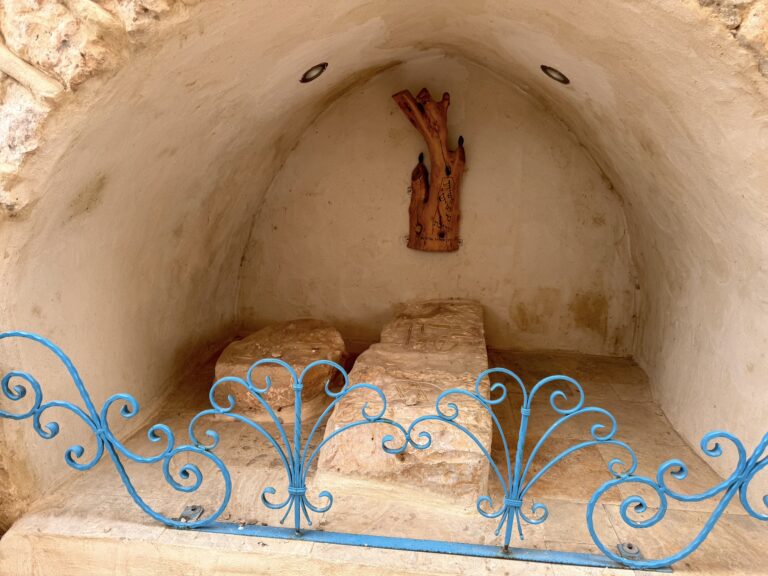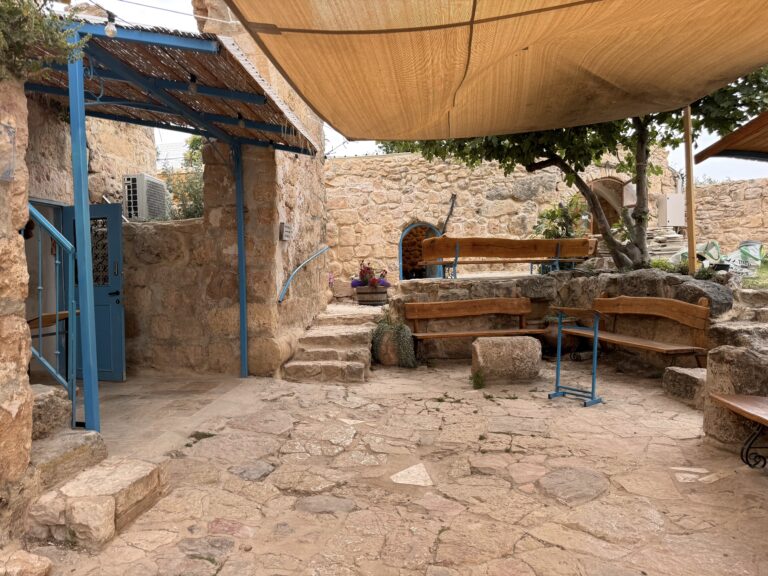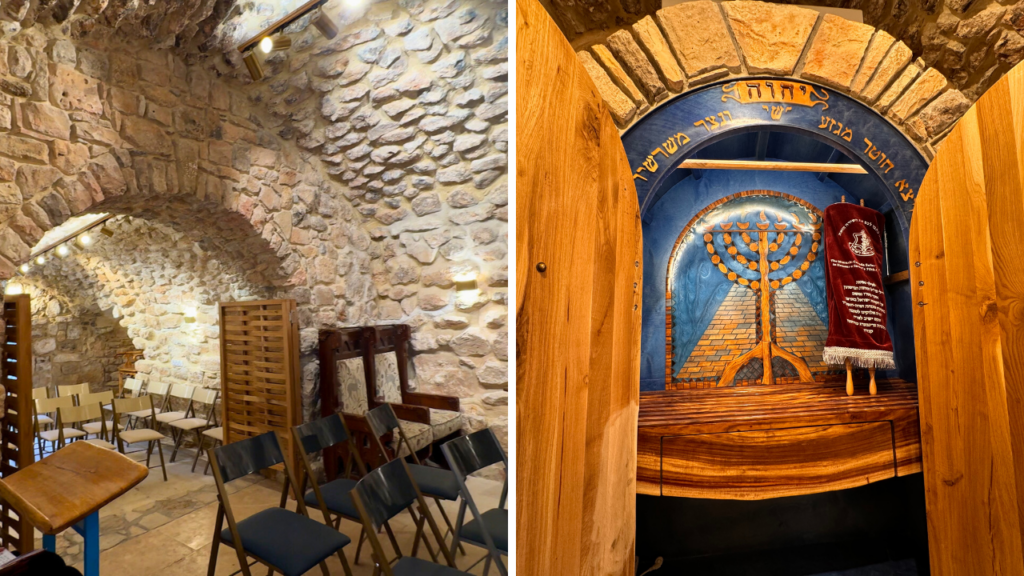“Fulfilling Biblical Prophecy”: Group Of Israelis Restore King David’s Family Tomb
A group of Israelis are restoring one of Judaism’s holy sites, the tombs of King David’s ancestors.
Yishai Fleischer, the international spokesperson for the Jewish community of Hebron, said the restoration of the tombs of Jesse and Ruth “is fulfilling biblical prophecy.” Fleischer is referring to the Old Testament verse Isaiah 11:10, which states Jesse’s “resting place will be glorious.”
“The nations of the world will come to the root of Jesse [and] King David,” Fleischer said.
Jesse and Ruth were King David’s father and great-grandmother, respectively.
Restored buildings at the tomb include a synagogue, a small learning and dining space, a room for a scribe to write the Book of Ruth, a garden, bathrooms, and more.
According to Fleisher, when renovations began a few years ago, the buildings were decrepit and lacked running water and electricity.
“We kind of built them back up, restored them so that they don’t collapse,” he said. “I think that God held them up until we came in and fixed it and made it so they would stand.”
“It was all filled with dirt and dead animals and who knows what else,” he added. “We brought electricity, we fixed those ceilings and we fixed the building so it doesn’t fall down anymore.”

The traditional grave markers for Ruth and Jesse, King David’s great-grandmother and father, respectively.
Builders on the site have crafted stone walls, laid tile flooring, and painted railings to enhance both functionality and appearance. To make the location more attractive to tourists and for group gatherings, they have also installed benches, running water, electricity, air conditioning, and movie screens.
Located on a hilltop in the Tel Rumeida neighborhood, the Tomb of Ruth is under Israeli control in the city of Hebron, in Judea and Samaria (also known as the West Bank).
Hebron is also the home to the Cave of the Patriarchs and Matriarchs. According to the Bible, Abraham purchased a burial cave at the site, which became the traditional burial place for Abraham, Sarah, Isaac, Rachel, Jacob, and Leah. A large structure built over the burial caves in the first century BCE was later turned into a church by Crusaders, a mosque by the Turks, and is now divided into two areas for Jewish and Muslim worshipers.
According to the Bible, Hebron is the place King David was crowned and ruled for the first seven years of his reign before moving to Jerusalem.

The welcome area at the Tomb of Ruth and Jesse.
One of the earliest documented mentions of the site as Jesse’s tomb comes from a student of the prolific Torah scholar Nachmanides around 1290. The earliest mention of the site as Ruth’s tomb is in the 1835 Love of Jerusalem by Haim Horowitz.
“Even if it’s not the tomb of Ruth it’s the place where we commemorate and celebrate Ruth,” Fleisher said.
The site has visitors year-round, with many Jewish and non-Jewish pilgrims visiting during the Jewish holiday of Shavuot (Pentecost), when the Book of Ruth is traditionally read.
The Book of Ruth tells the story of a Moabite woman who married into a Jewish family living in Moab. After her husband and father-in-law died, she accompanied her destitute mother-in-law back to Israel, declaring that the Jewish people were her people as well. In Bethlehem, Ruth remarried a wealthy landowner and gave birth to Obed, the father of Jesse and grandfather of King David.
The site only displays tomb markers for Ruth and Jesse, while the burial caves are traditionally underground and are not known to have been disturbed in modern times.
Professor Benzion Tavger was the driving force behind reopening the site in the mid-1970s. In 1999, artifacts as old as 4,000 years were unearthed at the site by archaeologists, including several seals with the ancient Hebrew inscription “To the King, Hebron,” according to the Hebron Fund. In 2016, furniture and electricity were first added to the synagogue.
The restored synagogue at the traditional site of the Tomb of Ruth and Jesse
“We made a little spot that was holy, we made it feel holy, made it look holy, and that’s what the rebirth of the Jewish people in the land of Israel does,” Fleisher said. “It takes an ancient place that was 2,000 years ago important, and has been forgotten, and it’s resurrected.”
The site is located next to an Israel Defense Forces base that helps ensure the security of the small Jewish community surrounded by the large Palestinian city of Hebron.
Fleisher is part of a group of Israelis working to strengthen the Jewish community in Hebron, which has maintained a nearly-continuous presence in the area for over three millennia. This presence was interrupted most recently in the 1929 Massacre when local Arabs killed about 67 Jews and the British in charge expelled the survivors. The community returned after the 1967 Six-Day War and currently stands at about 1,000 Jews.
“It’s our land in Hebron, we are a very ancient people here,” Fleisher said. “We’ve been living in this town for over 3,500 years and we have proof from the First Temple period, that’s 3,000 years ago and the Second Temple period 2,000 years ago.”
“Now the tomb of Ruth and Yishai is being beautified, and is being restored to its proper glory,” he added.

No comments